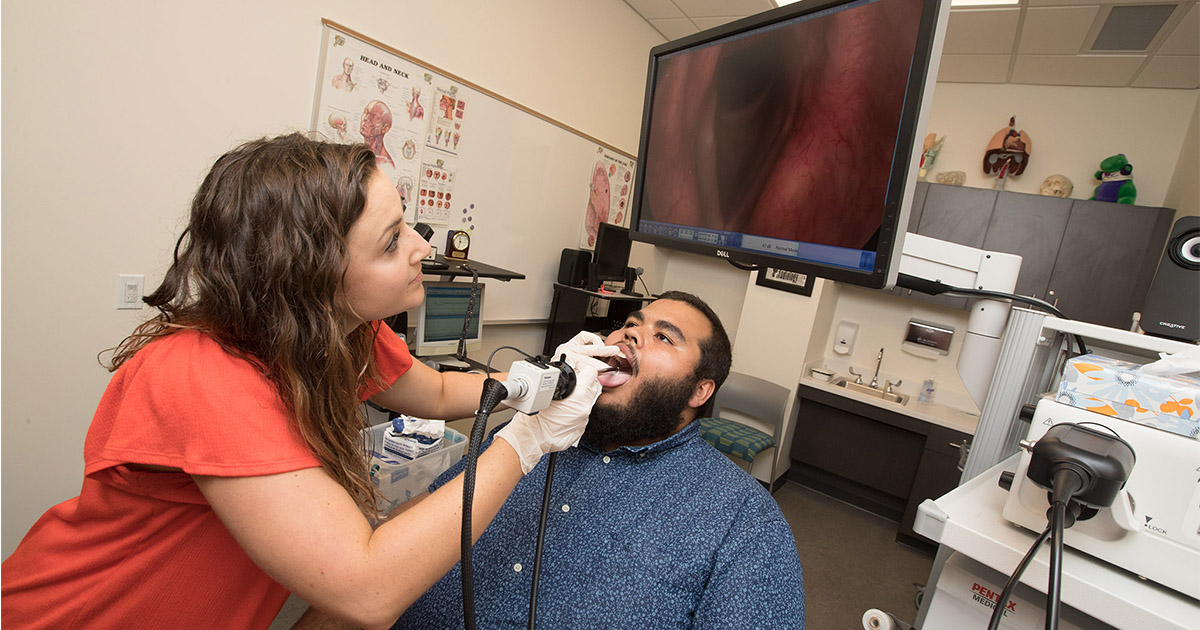Just How a Speech Pathologist Can Help Improve Communication Abilities
Effective interaction is a keystone of individual and specialist success, yet lots of people deal with difficulties that impede their capability to express themselves clearly. A speech pathologist is equipped to resolve these barriers through targeted assessment and treatment strategies tailored per person's requirements. By employing evidence-based restorative methods, they not only function to boost speech and language conditions however also boost total communicative competence. Recognizing the complex function of a speech pathologist reveals just how their expertise can change lives, inviting a closer exam of the specific techniques and outcomes related to their method.
Recognizing Interaction Disorders
Comprehending communication disorders is essential for recognizing how they affect people' ability to share themselves and engage with others. Communication disorders encompass a wide array of troubles that influence speech, language, and social communication, often preventing reliable communication. These disorders can occur from numerous aspects, consisting of neurological conditions, developmental delays, physical disabilities, or psychological concerns.
Speech conditions may show up as problems in voice, articulation, or fluency production, affecting exactly how words are noticable or talked. Language disorders, on the various other hand, involve obstacles in understanding or using language, which can restrain both non-verbal and spoken interaction. Social interaction conditions are characterized by difficulties in the practical facets of interaction, such as taking turns in discussion or understanding social hints.
The effects of communication disorders are profound, influencing not only the individual's capability to share feelings and thoughts yet additionally their social relationships, educational chances, and general top quality of life. Awareness of these conditions can promote empathy and assistance, motivating efficient techniques for communication and engagement. Recognizing the intricacies of interaction conditions is a crucial action in the direction of promoting inclusivity and dealing with the needs of those impacted.
Duty of a Speech Pathologist
Speech pathologists often play a crucial role in treating and diagnosing communication disorders, employing a variety of evidence-based methods customized to every individual's needs. These professionals work with people across the life-span, from kids with speech delays to grownups recovering from strokes or distressing mind injuries. Their expertise includes a selection of interaction concerns, including expression, fluency, language, and voice conditions.
In therapeutic settings, speech pathologists utilize structured treatments designed to improve communication skills. They might execute strategies such as speech workouts, language games, and social communication training to facilitate improvements in meaningful and responsive language abilities. Speech Pathologist. Additionally, they enlighten customers and their families regarding efficient interaction strategies and flexible techniques to browse daily interactions
Beyond direct treatment, speech pathologists team up with various other healthcare specialists, caregivers, and instructors to guarantee an extensive technique to treatment. They support for customers by providing resources and assistance, allowing individuals to accomplish their interaction objectives and improve their total high quality of life. As experts in the field, speech pathologists are crucial in cultivating reliable communication, advertising independence, and enhancing social involvement for those with interaction challenges.
Analysis and Diagnosis Process
The evaluation and medical diagnosis procedure conducted by speech pathologists usually involves an extensive analysis to determine communication conditions precisely. This process begins with a thorough instance background, where the medical professional gathers essential info concerning the individual's clinical, instructional, and developmental background. Comprehending the context of the individual's communication troubles is essential for an exact medical diagnosis.
Following the case background, speech pathologists use casual assessments and standardized examinations to assess various elements of communication, including speech audio manufacturing, language understanding, meaningful language, and social interaction skills. These assessments are customized to the person's age and specific issues, offering useful data for analysis.
Monitoring is also a vital component of the analysis process, as it permits the clinician to see direct exactly how the individual connects in all-natural settings. In addition, interviews with household members and educators can offer understanding into the person's communication obstacles across various environments.
When the evaluation is total, the speech pathologist synthesizes the findings to determine a diagnosis and suggest appropriate interventions. This extensive analysis procedure ensures that people obtain targeted support tailored to their one-of-a-kind communication demands, laying the structure for effective restorative approaches.
Restorative Methods and Approaches
Numerous restorative strategies and strategies are employed by speech pathologists to attend to a selection of communication disorders successfully. One extensively utilized method is articulation treatment, which concentrates on correcting speech sounds with repeating and aesthetic signs. This technique is particularly helpful for people with speech audio problems.
Another effective technique is language intervention, which improves both responsive and meaningful language abilities. This might include interactive tasks that advertise vocabulary development, sentence structure understanding, and conversational skills. Furthermore, speech pathologists commonly utilize social abilities educating to enhance pragmatic language capabilities, allowing individuals to navigate social communications extra efficiently.
Fluency shaping and stuttering alteration strategies are especially created to help those experiencing fluency conditions. These methods aid customers create smoother speech patterns and handle the physical and psychological components of stuttering.
Additionally, alternate and augmentative interaction (AAC) systems are employed for individuals with extreme interaction disabilities. These systems, which can include gestures, icons, or electronic tools, give necessary support for effective interaction.
Advantages of Speech Therapy

In addition, speech treatment can assist in developing essential listening and understanding skills, fostering far better communication in conversations. Individuals with cognitive-communication problems can likewise profit, as treatment concentrates on strengthening memory and analytic capacities, vital for effective interaction.
One more crucial facet official statement is the psychological assistance provided throughout therapy sessions. Speech pathologists develop a risk-free environment, motivating clients to overcome anxiousness and irritation related to their interaction concerns. This assistance can lead to enhanced self-esteem and total mental health.
Moreover, very early intervention with speech treatment can prevent further issues, guaranteeing that people reach their full communicative capacity. Overall, the benefits of speech treatment extend beyond plain speech improvement, favorably affecting different dimensions of life for those impacted by communication problems.
Conclusion
In summary, speech pathologists play a critical duty in dealing with interaction disorders with analysis, medical diagnosis, and tailored restorative treatments. By using evidence-based strategies, these professionals improve people' speech and language capacities, fostering improved clearness, fluency, and social communication abilities. The advantages of early intervention highlight the value of looking for assistance from speech pathologists, as their know-how can significantly enhance communicative potential, eventually causing better success in both specialist and personal balls.

Speech pathologists frequently play a crucial duty in diagnosing and dealing with interaction problems, employing a range of evidence-based methods customized to each person's demands. As experts in the field, speech pathologists are vital in promoting reliable communication, promoting self-reliance, and boosting social engagement for those with communication Discover More Here challenges.
